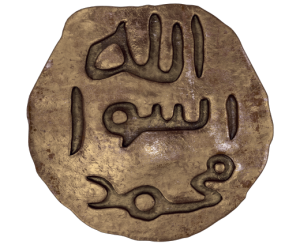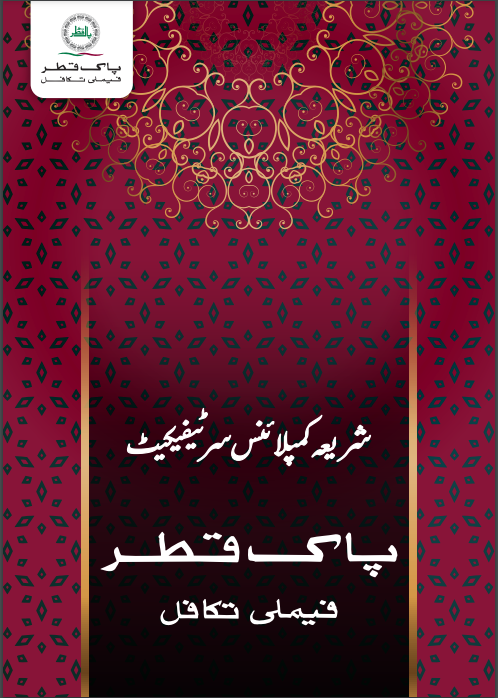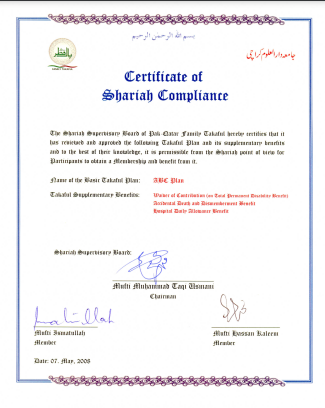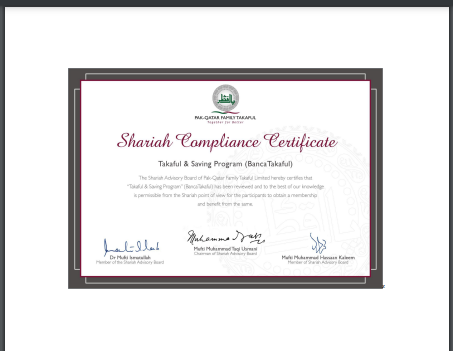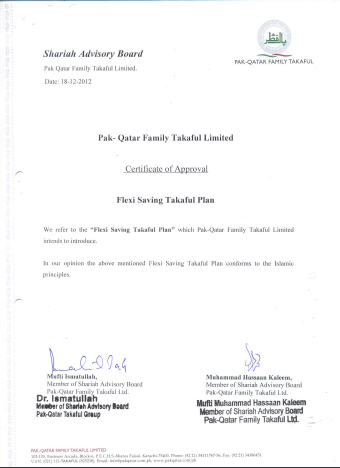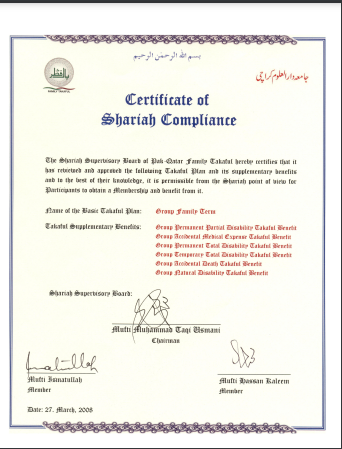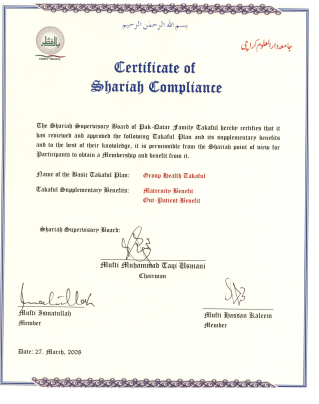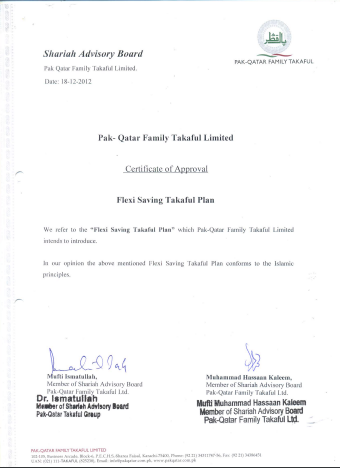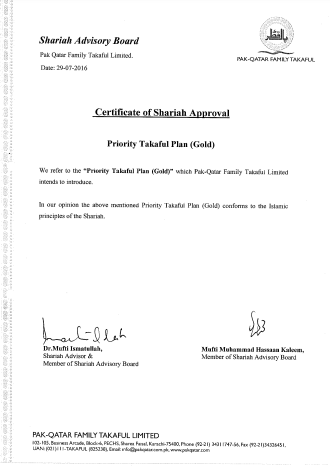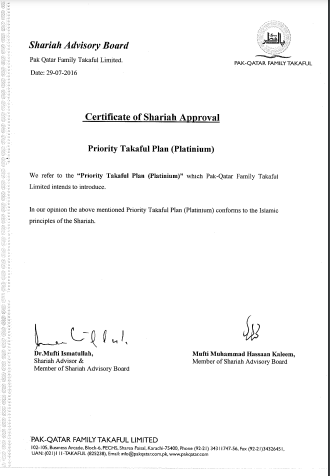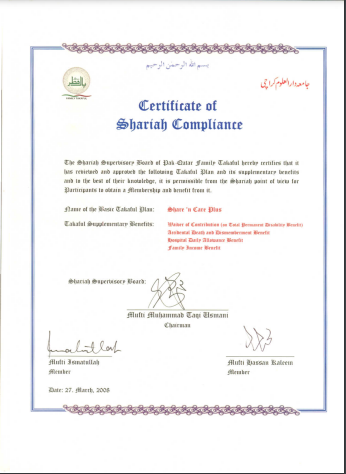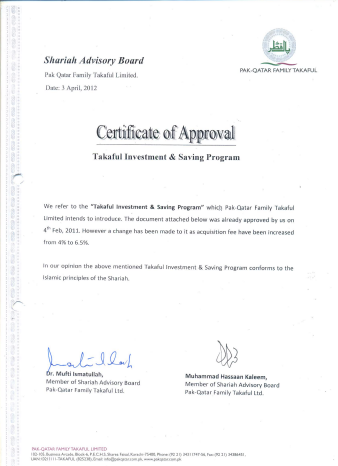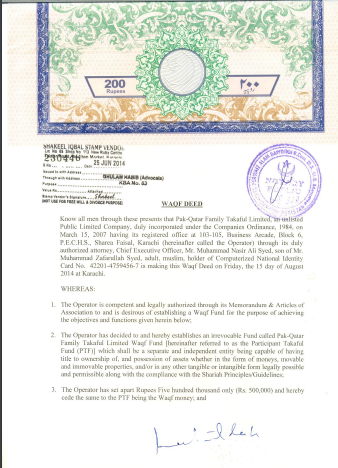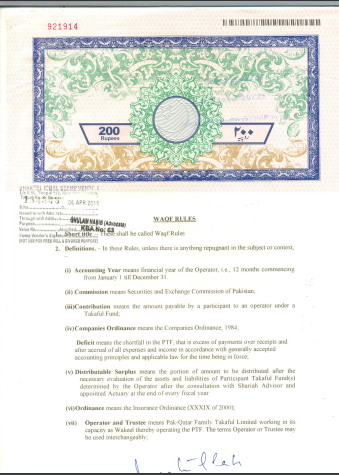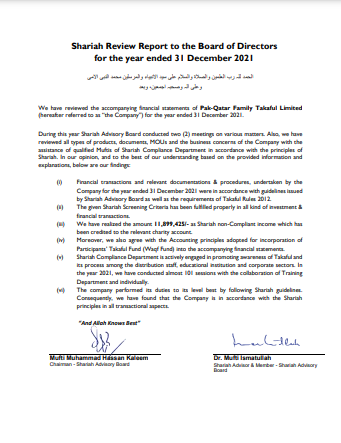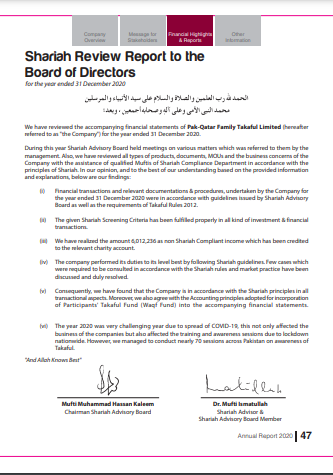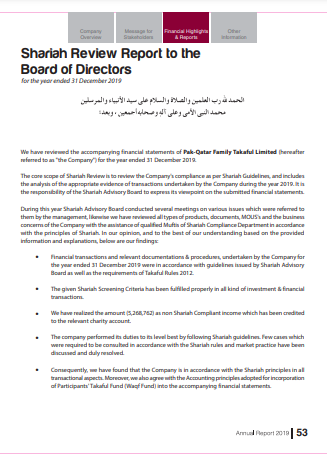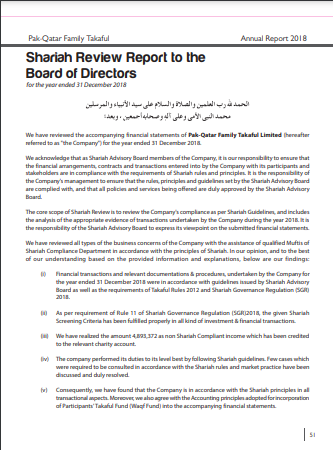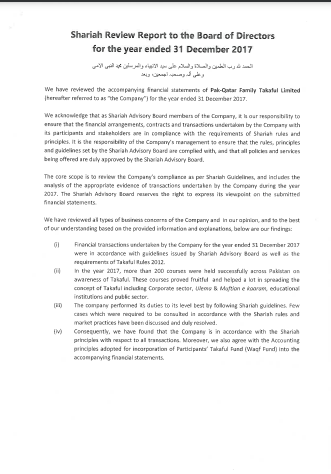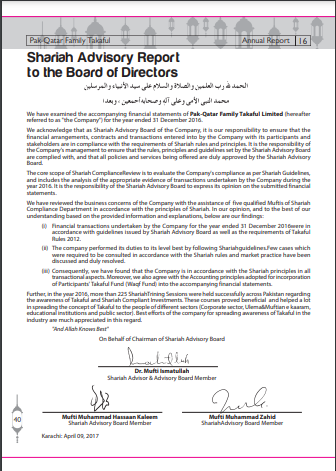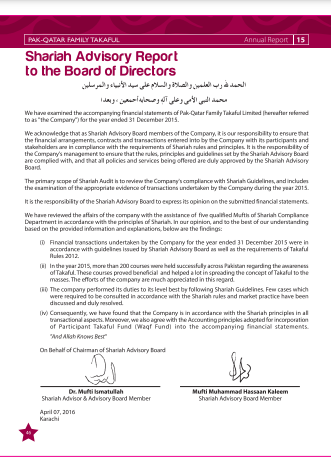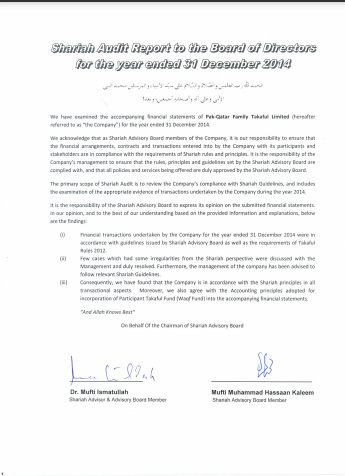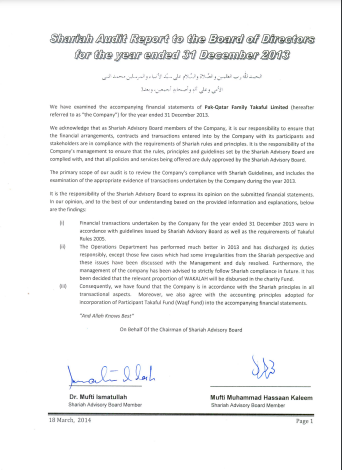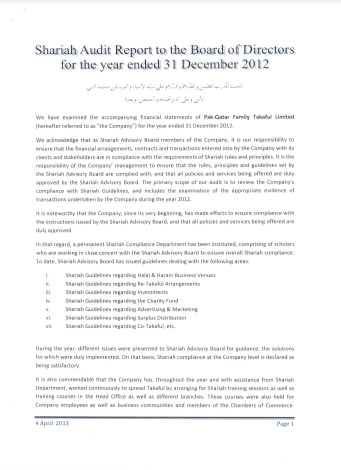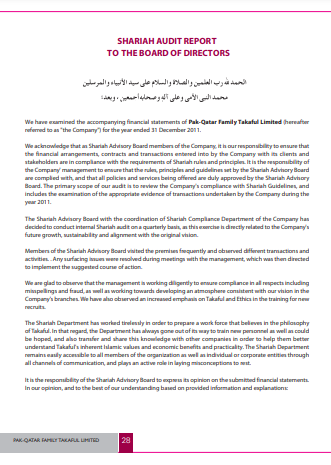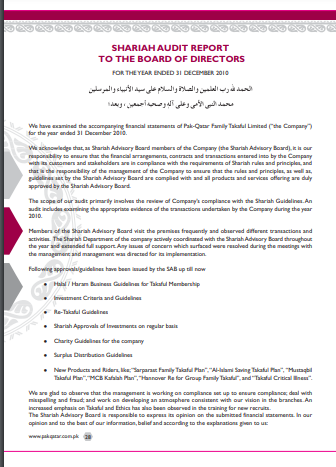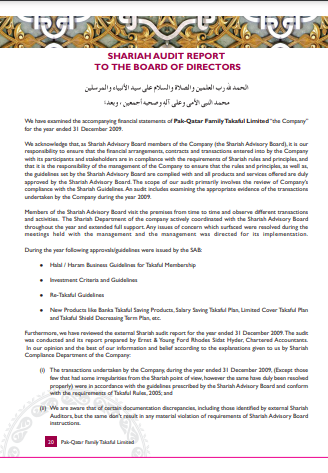Introduction
The task of investing funds in Shariah approved and financially viable businesses is carried out by a team of investment specialists at Pak-Qatar Family & General Takaful Limited. This activity is supervised by a panel of Shariah Board Members chaired by Mufti Muhammad Hassaan Kaleem (previously by Mufti Muhammad Taqi Usmani) for Shariah compliance.
The screening criteria set by the executive committee of the Shariah Supervisory Board are as follows:
- Business of the Investee Company
- Debt to total Asset ratio
- Illiquid assets as a percentage of Total Assets
- Investment in non-Shariah compliant activities and income from non- Shariah – Compliant investments
- Net liquid assets versus share price
Business of Investee Company
1.The first step is to check whether the business of the investee company is Halal, or not. Thus, investment in shares of conventional banks, insurance companies, leasing companies, Modarabah companies (that violate the Modrabah rules of the Shariah), companies dealing in alcohol, tobacco etc. are not permissible.
2.The company must have started its business practically and its assets must be existent, i.e. its capital planning should have been executed already.
After confirming that the nature of the company’s business is compliant and existent, following ratios are checked and a separate excel sheets have to be maintained for each company.
All the interest-bearing debt and interest-bearing financing is calculated which is then divided by the total assets. This ratio should not exceed 33% in order for the company to remain compliant.
- ILLIQUID ASSETS TO TOTAL ASSETS:
An asset or security that cannot be converted into cash very quickly (or near prevailing market prices) is considered illiquid. Property, Plants & Equipment, Investments, Stocking-Trade, and Stores, Spares & Loose tools are the main
heads included in Illiquid Assets for the purpose of checking compliance. The total illiquid assets of the investee company should be at least 20% of the total assets.
Profit and Loss Sharing
1.Profit and loss of the company must also affect the profit and loss of its investors based on the amount of shares/ investment they own or made.
2.The profit and loss sharing ration at the time of the execution of the agreement must be fixed. It is not possible to guarantee a particular fixed growth income or to guarantee a fixed monthly, quarterly, yearly income etc.
Guidelines regarding trading in Shares
1.If the company was registered but doesn’t have anything other than the needed startup capital/ investments ready, i.e. it didn’t start its business as yet, and then its shares could only be bought based on their real FACE VALUE. Selling or buying those shares for more or less than their real face value is not permissible shar’an.
2.If bought shares are intended to be sold then they need to be registered at CDC in the name of the current owner first, as this is understood to be a proof of ownership. Ownership of goods is a necessary and compulsory part of the buying and selling process in the Shariah. This means that selling any goods without having is ownership established may it be through real or constructive ownership, is impermissible.
3.The exchanges of one’s shares with shares of somebody else (barter) is only permissible if the ownership of those shares had been properly established.
4.The conventionally transacted way of Repo (repurchase transaction) and Rev. Repo (reversed repurchase transaction) are not permissible.
5.The nowadays prevailing practices and conditions of Forward Trading and Future Trading as well as Blank-Sale and Short-Sale at the stock exchange are Shar’an not permissible.
Income from non- Shariah compliant investments
1.Total investments in non-Shariah compliant business are calculated for each company and are divided by Total Assets. The resulting ratio should not exceed 33%.
2.If money needs to be invested in a company that deals mainly in halal but also receives revenues from side businesses that could be haram, than it should be done with the firm intention to inform in written and also orally, if possible even in their annual meetings that the company should not do any haram business generally and particularly with this investment.
3.The Shareholder/investor needs to check the yearly balance sheet of the companies to determine to what percentage haram income was received. Based on this he has to give an equal percentage of his profit into charity.
4.All Incomes from non Shariah Compliant Investments are summed and their ratio to gross revenue (Gross Sales + Other Income) is calculated. This ratio should be less than or equal to 5%.
Net Liquid Assets vs. Share price
The Net liquid Assets are calculated as follows:
Net Liquid Assets = Total Assets – (Tangible Fixed Assets + Inventory) – Liabilities
- The Net Liquid Assets per share are calculated and compared with the market price per share.
- The Net Liquid Assets should be less than the Market price per share.
Additional Remarks
After every three month the screening process has to be revised to ensure Shariah compliance of the scripts in holding.
In case of non-compliance of the investee company after a previous Shariah compliance a disinvestment has to take place immediately. But should this cause a severe loss or should the market situation be non-favorable than this case will be decided on individual basis by the Shariah Supervisory Board.
The aforementioned guidelines are to be understood as standard guidelines, nevertheless in certain cases where ever deemed necessary and on the basis of the decision of the Shariah Supervisory Board certain alterations of those could be possible and a separate Shariah approval for those cases need to be obtained.


